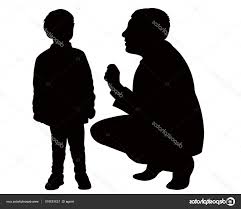 I recently overheard a father telling his preteen son what it means to be a man. It prompted sharing the following blog.
I recently overheard a father telling his preteen son what it means to be a man. It prompted sharing the following blog.
“At the age of ten a boy begins imitating a man. And he continues doing this for the rest of his life.” -Mark Twain
Most guys get lessons on how to live by the “boy code” from an early age—in families, playgrounds, schools, churches and temples, and on the streets. Even very young boys learn to “keep a stiff upper lip,” “not show their feelings,” “act real tough,” “not act too nice,” and “be cool.” Since the surest way to minimize threat is to play the role well, the more boys successfully identify with or imitate the role, the better they’re able to live it. However, “success” has its costs. For example, there’s evidence that strict adherence to the traditional male role (TMR) ultimately leads to a shorter life span. Underlies this whole traditional male role (TMR) ideology which is reflected through attitudes and behaviors like aggression and competitiveness is the rejection and aversion to vulnerable emotions and expressions—especially if they appear feminine in any way.
Most guys learn that showing any vulnerability is a sure sign of weakness and something to be avoided.
But, of course, the practice of not showing you’re hurt or revealing any weaknesses, even to yourself, smacks up hard against reality since everyone has failures, makes small and large mistakes, and experiences immeasurable losses. Feeling vulnerable and suffering in the face of failure, uncertainty or loss couldn’t be more human—wherever we fall on the gender spectrum.
We know that a healthy response to suffering is self-compassion, but the very essence of the TMR stops most guys from ever considering the practice of self-compassion. Many misunderstand self-compassion, considering it to be soft, weak, and self-indulgent. This is unfortunate because there is ample scientific research that shows people higher in self-compassion are often stronger, more successful, and happier. Another common misunderstanding is that compassion is just about soothing, comforting and validating.
Self-compassion is also about protecting, providing, and motivating—qualities with which many men resonate.
However, for most men to even consider engaging in practices of self-compassion, it requires that they confront these misunderstandings as well as a lifetime of internal messages about what it means to be a man. Doing so requires real courage. Fortunately, courage is a quality most men resonate with and aspire towards.
What is your Man Code?
What Man Code are your teaching your son?
Until next time, remember,-
You are not alone.
-
You are not your circumstances.
-
You have everything within you to live a purpose-filled life.








